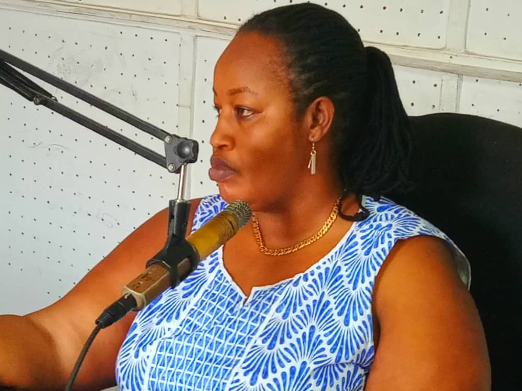
News
A Voice for Rwandans with Psychosocial Disabilities
Play audio version
Meet DJP Fellow Rose Umutesi
October 23, 2021
Rose Umutesi, like many other Rwandans, was forever impacted by the 1994 genocide. “We had a lot of challenges. Girls and women were left, some were amputated. Others were left behind, alone … It came to our mind that we can gather together …” she says. “So, we would sit under trees and discuss our issues, sharing…” According to Umutesi, many Rwandans developed post-traumatic stress disorder and other types of mental health conditions because of the genocide, herself included. The genocide led her to psychosocial disability rights advocacy.
Once you get mental illness, it means you are finished in the community. They don’t consider any more like a person who is useful to families.
Rose Umutesi
Forty-two-year-old Rose Umutesi was born and raised in Kigali, the capital of Rwanda. She received an undergraduate degree in leadership and hospitality management at Akilah Institute in 2019. She co-founded the National Organization of Users and Survivors of Psychiatry Rwanda (NOUSPR) in 2005, hoping to disrupt the stigmatization of and discrimination against people with psychosocial disabilities in Rwandan communities. “Once you get mental illness, it means you are finished in the community. They don’t consider any more like a person who is useful to the families,” says Umutesi.
Today, she helps form district groups for people with psychosocial disabilities in Rwanda. NOUSPR has 19 district branches across the country, with 45 patient experts who assist members of the organization. She contends there is a lot more work to be done, but she maintains a hopeful outlook. “What we should do is to love what we are doing, love what you are doing and focus on it. I know things will be … fully done,” she says. “And, what we need most is to see the community respecting and protecting the life of people with psychosocial disability.”
In 2018, Umutesi introduced a draft of the African Disability Protocol, a human rights treaty that addresses discrimination against people with disabilities in Africa, to the Rwandan Ministry of Justice. A draft was ratified in 2019 and signed this year. Umutesi was elated: “…When they signed it, I was almost jumping and saying ‘Wow! At least I have done something to my country. At least I have done something to my people, to gain their right.’”
Michelle Faulkner is a staff editor at the Disability Justice Project.
News From the Global Frontlines of Disability Justice

Rwanda’s Marburg Crisis
As Rwanda confronts its first-ever Marburg virus outbreak, people with disabilities face heightened risks — not only from the virus but also from the lack of accessible health information. “Without proper accommodations, such as sign language interpreters, captions, Braille, or visual aids, the Deaf and DeafBlind community may miss crucial information about how to protect themselves, symptoms to watch for, or where to seek help in case of infection,” says Joseph Musabyimana, executive director of the Rwanda Organization of Persons with Deaf Blindness.
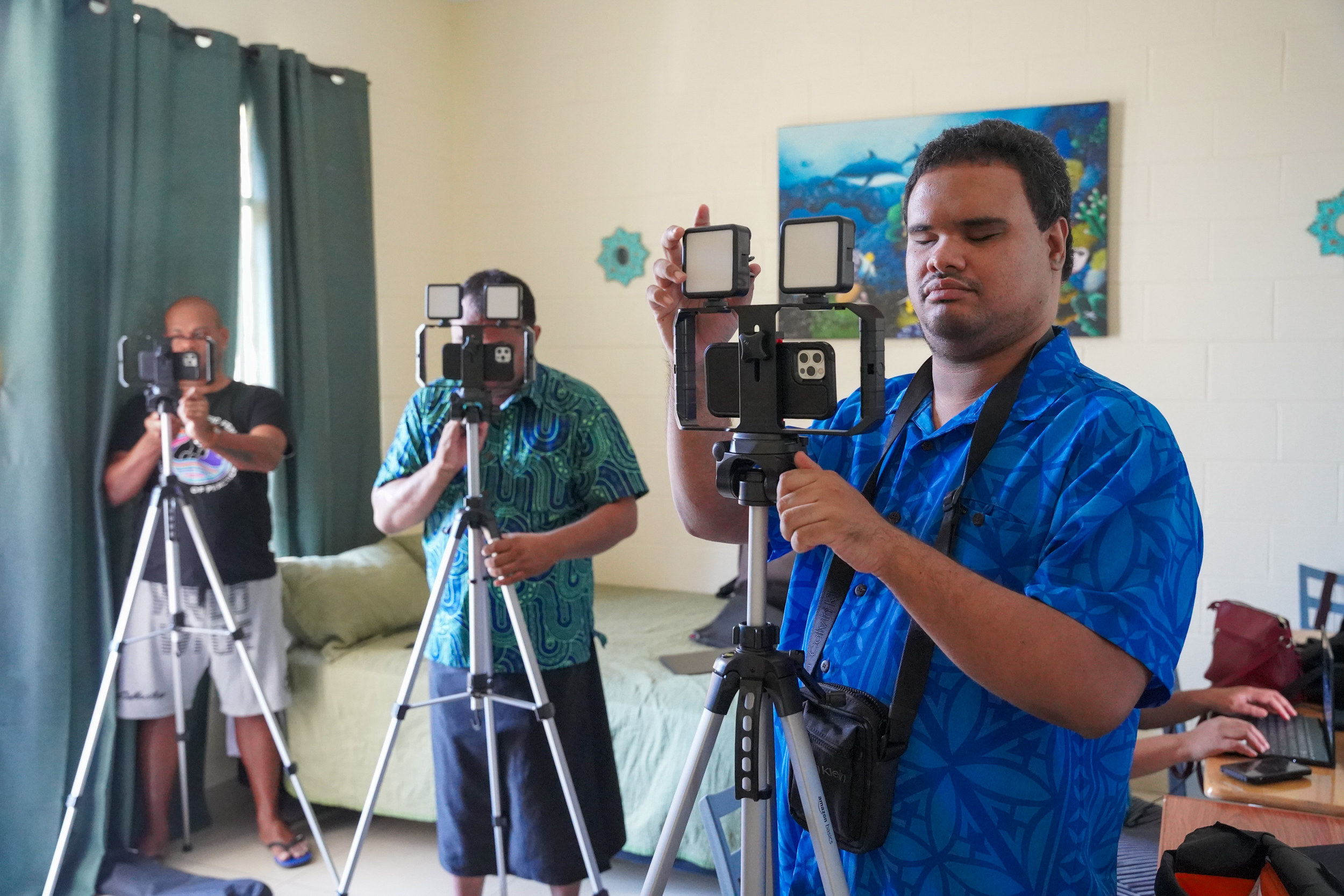
Capturing Vision Through Sound and Touch
Last summer, the DJP trained Indigenous activists with disabilities from the Pacific on the iPhone camera to create a documentary series on disability and climate change. With VoiceOver, the iPhone provides image descriptions for blind and low-vision filmmakers and offers other accessible features. “If you think about it, it doesn’t make sense for a blind person to use a camera,” says DJP filmmaker Ari Hazelman. “The iPhone gives you more avenues to tell your story in a more profound way as a blind person.”
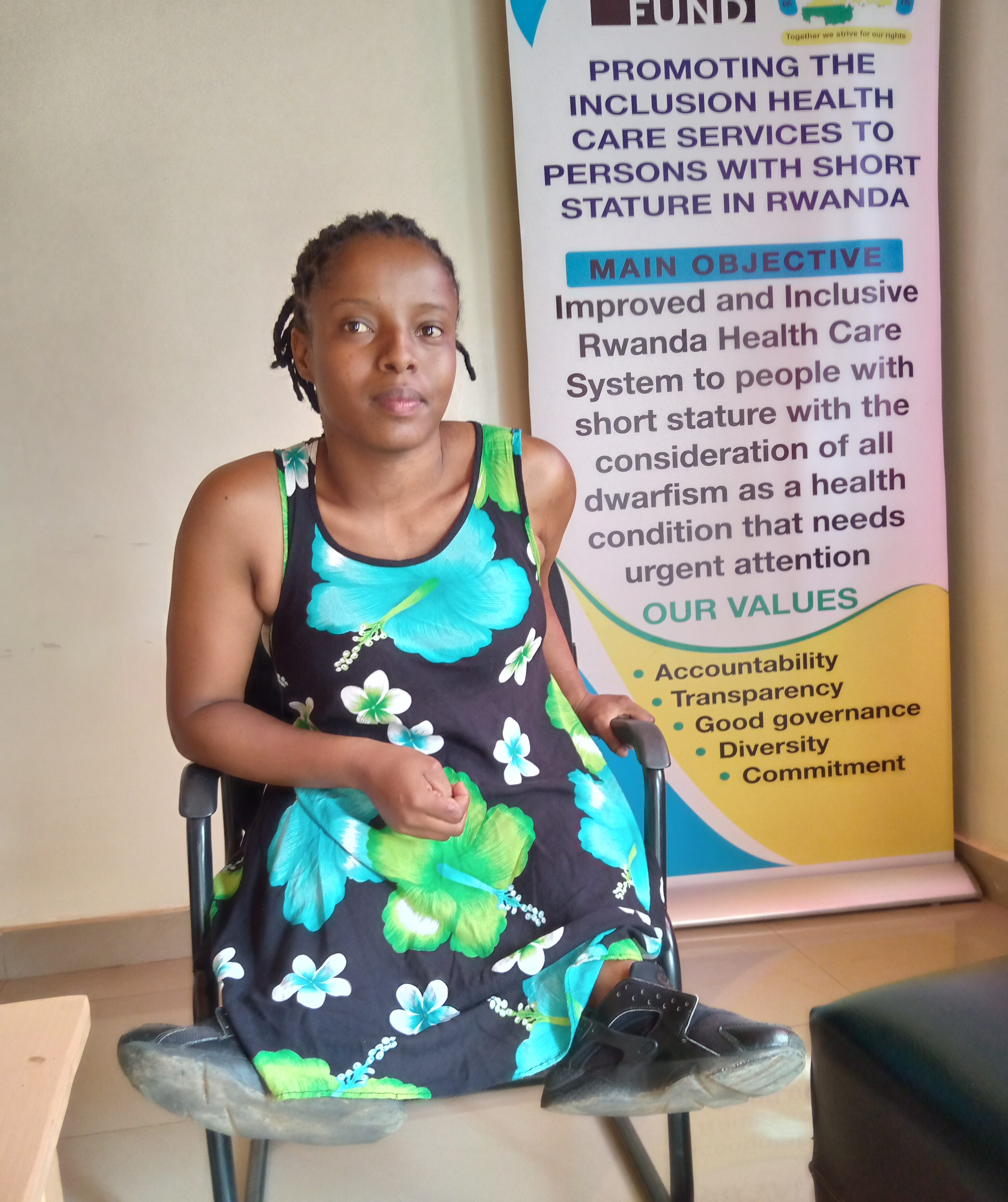
Work for All
The We Can Work program equips young Rwandans with disabilities to navigate barriers to employment through education, vocational training, and soft skills development. By fostering inclusive workplaces and advocating for policy changes, the program aims to reduce poverty and promote economic independence. Participants like Alliance Ukwishaka are optimistic that the program will enable them to achieve their dreams and showcase their potential. The initiative is part of a larger effort to support 30 million disabled youth across seven African countries.
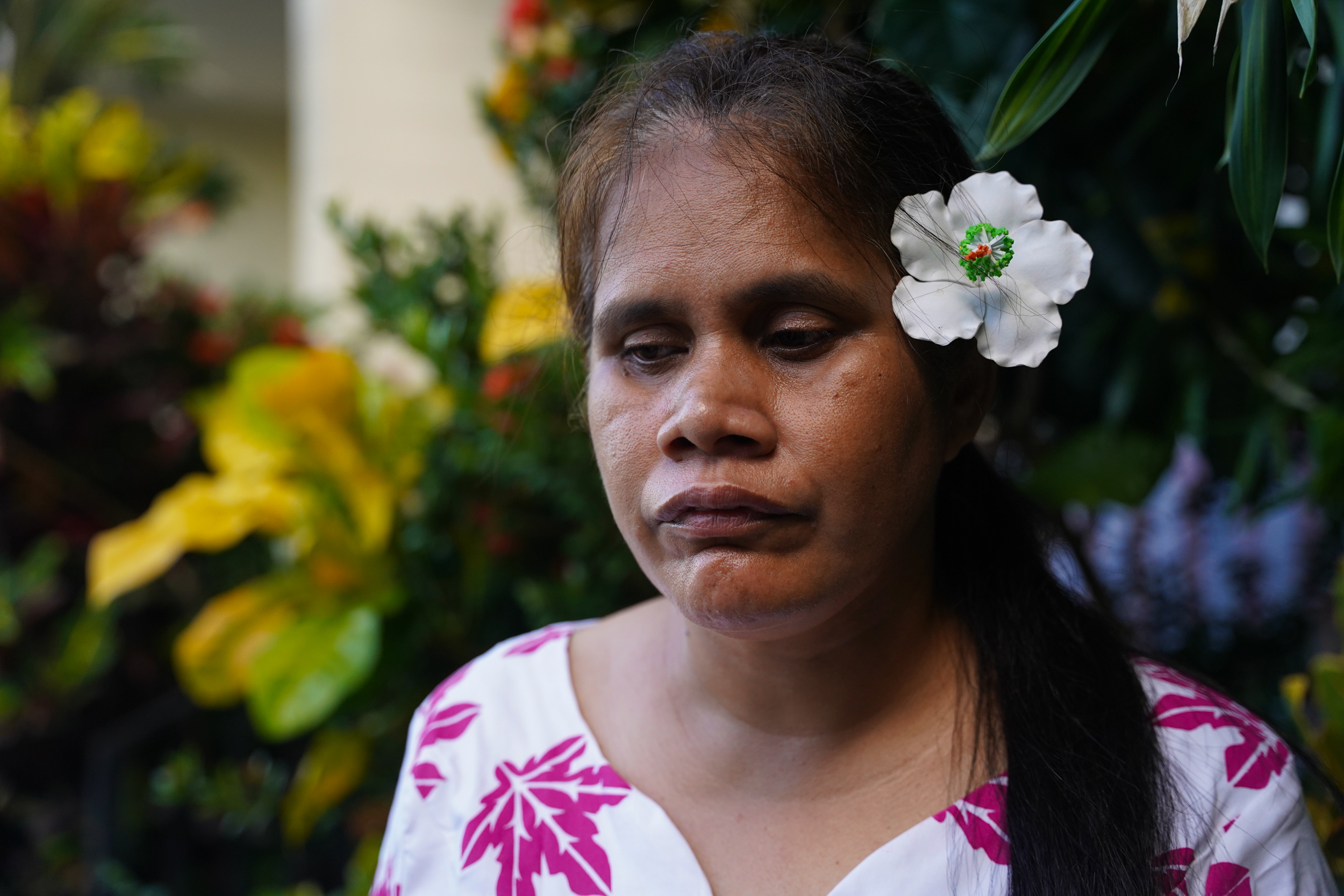
Global Recognition
Faaolo Utumapu-Utailesolo’s film “Dramatic Waves of Change” has been named a finalist in the Focus on Ability International Short Film Festival. The film, completed during a Disability Justice Project workshop in Samoa, highlights the impact of climate change on people with disabilities in Kiribati. Utumapu-Utailesolo, who is blind, used an iPhone with accessibility features to create the film. “Do not leave people with disabilities behind when [you] plan, implement, and monitor programs regarding climate change and disaster,” she says. Her achievement is a testament to the power of inclusive filmmaking.
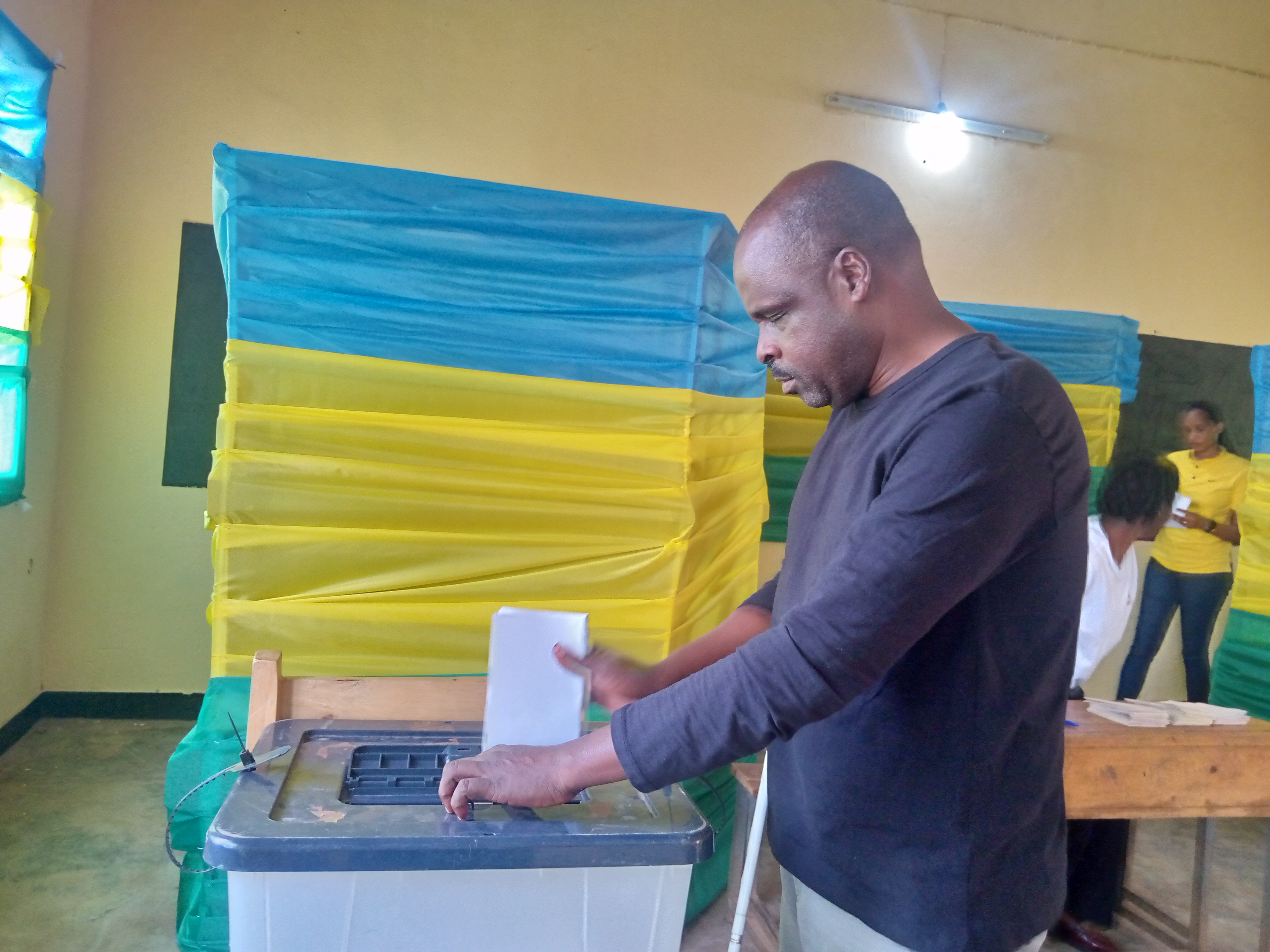
Advancing Democracy
Rwanda has made significant progress in making its elections more accessible, highlighted by the July 15 general elections where notable accommodations were provided. This was a major step forward in disabled Rwandans’ quest for equal rights and participation. “You cannot imagine how happy I am, for I have voted by myself and privately as others do accessibly,” says Jean Marie Vianney Mukeshimana, who used a Braille voting slate for the first time. “Voting is a deeply emotional and meaningful experience for a person with any disability in Rwanda, reflecting a blend of pride, empowerment, and hope.”
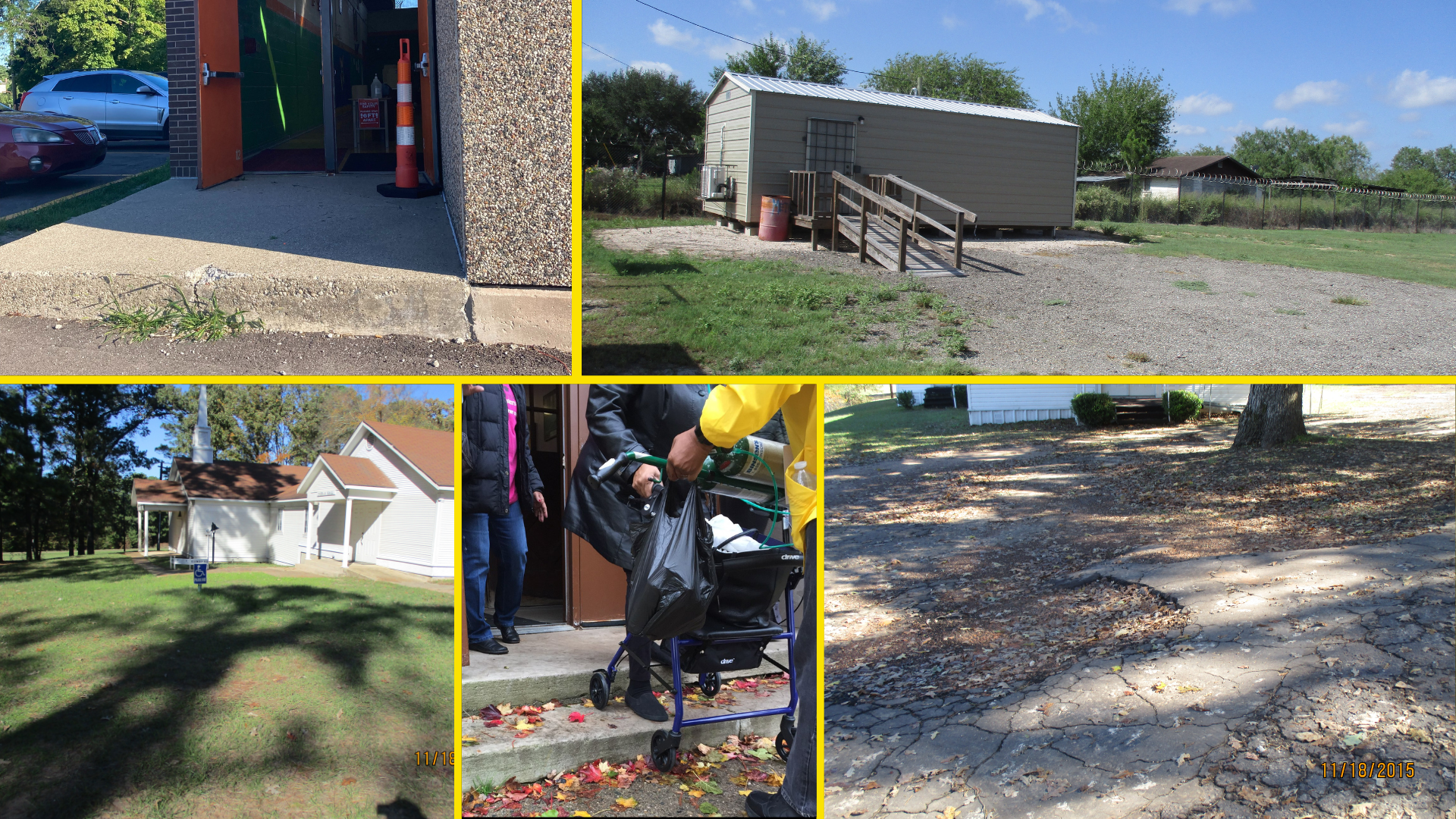
Barriers to the Ballot
Despite legislation like the Americans with Disabilities Act, barriers at the polls still hinder — and often prevent — people with disabilities from voting. New restrictive laws in some states, such as criminalizing assistance with voting, exacerbate these issues. Advocacy groups continue to fight for improved accessibility and increased voter turnout among disabled individuals, emphasizing the need for multiple voting options to accommodate diverse needs. ““Of course, we want to vote,” says Claire Stanley with the American Council of the Blind, “but if you can’t, you can’t.”